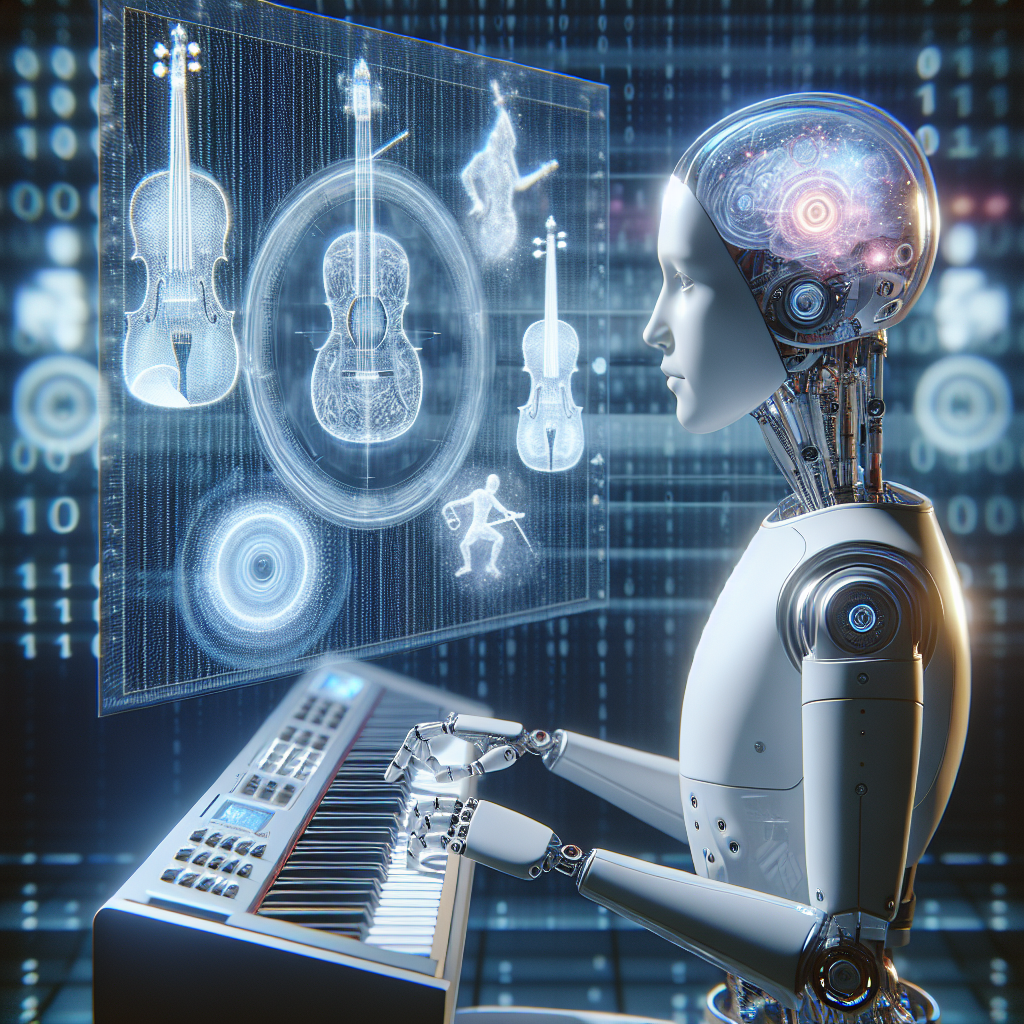Artificial intelligence (AI) has been revolutionizing various industries, and the music industry is no exception. AI technology has the potential to reshape how music is created, produced, and consumed in the future. One of the most exciting developments in this field is the use of AI for music collaboration. In this article, we will explore how AI is changing the way musicians work together and the implications for the future of music collaboration.
AI and Music Collaboration
Traditionally, music collaboration has involved musicians coming together in a studio to write, compose, and record music. However, this process can be time-consuming and expensive, especially for artists who are not in the same location. AI technology is changing this dynamic by enabling musicians to collaborate remotely and in real-time.
One of the ways AI is used for music collaboration is through AI-generated music. AI algorithms can analyze existing music data to create new compositions that mimic the style of a particular artist or genre. This can be a valuable tool for musicians looking to experiment with new sounds or collaborate with artists from different backgrounds.
Another way AI is changing music collaboration is through virtual bandmates. AI-powered virtual bandmates can be programmed to play specific instruments or provide backing vocals, allowing musicians to create full arrangements without the need for additional musicians. This can be particularly useful for solo artists or small bands looking to create a fuller sound.
AI can also be used to analyze and improve music collaboration. For example, AI algorithms can track the progress of a collaboration project, identify areas of improvement, and suggest changes to enhance the final product. This can help musicians work more efficiently and produce higher-quality music.
Implications for the Future of Music Collaboration
The use of AI for music collaboration has the potential to revolutionize how musicians work together in the future. Here are some of the key implications of this technology:
1. Increased Accessibility: AI-powered music collaboration tools can make it easier for musicians to work together regardless of their location. This can open up new opportunities for collaboration between artists from different countries and backgrounds.
2. Enhanced Creativity: AI-generated music can inspire musicians to explore new sounds and styles, leading to more innovative and diverse music. Virtual bandmates can also provide musicians with new ideas and perspectives, enhancing the creative process.
3. Improved Efficiency: AI algorithms can help musicians streamline the collaboration process, saving time and resources. This can allow artists to focus more on creating music and less on logistical challenges.
4. Personalized Collaboration: AI technology can tailor music collaboration experiences to the specific needs and preferences of individual musicians. This can lead to more fruitful and enjoyable collaborations for all parties involved.
5. Democratization of Music: AI-powered music collaboration tools can empower independent artists and small bands to create professional-quality music without the need for a large budget or record label support. This can democratize the music industry and give more artists the opportunity to share their music with the world.
FAQs
Q: How does AI-generated music compare to music created by human musicians?
A: AI-generated music can mimic the style of a particular artist or genre but may lack the emotional depth and creativity of music created by human musicians. However, AI-generated music can be a valuable tool for musicians looking to experiment with new sounds and collaborate with artists from different backgrounds.
Q: Can AI-powered virtual bandmates replace human musicians?
A: AI-powered virtual bandmates can provide musicians with additional tools and resources to enhance their music, but they cannot replace the unique creativity and emotion that human musicians bring to a collaboration. Virtual bandmates can be a valuable addition to a musician’s toolkit but are best used in conjunction with human musicians.
Q: How can musicians get started with AI-powered music collaboration?
A: Musicians interested in exploring AI-powered music collaboration can start by researching available tools and platforms that offer AI-generated music and virtual bandmates. They can also reach out to AI developers and companies specializing in music technology for guidance and support.
In conclusion, AI technology is transforming the way musicians collaborate and create music. From AI-generated music to virtual bandmates, AI-powered tools are empowering musicians to work more efficiently, creatively, and collaboratively. The future of music collaboration is bright with AI leading the way.

